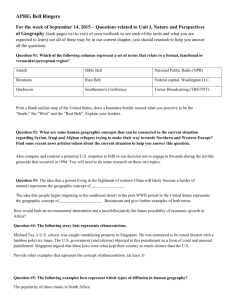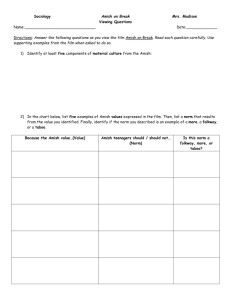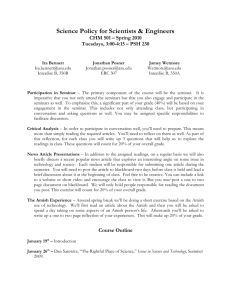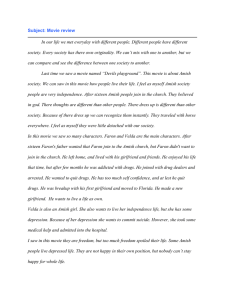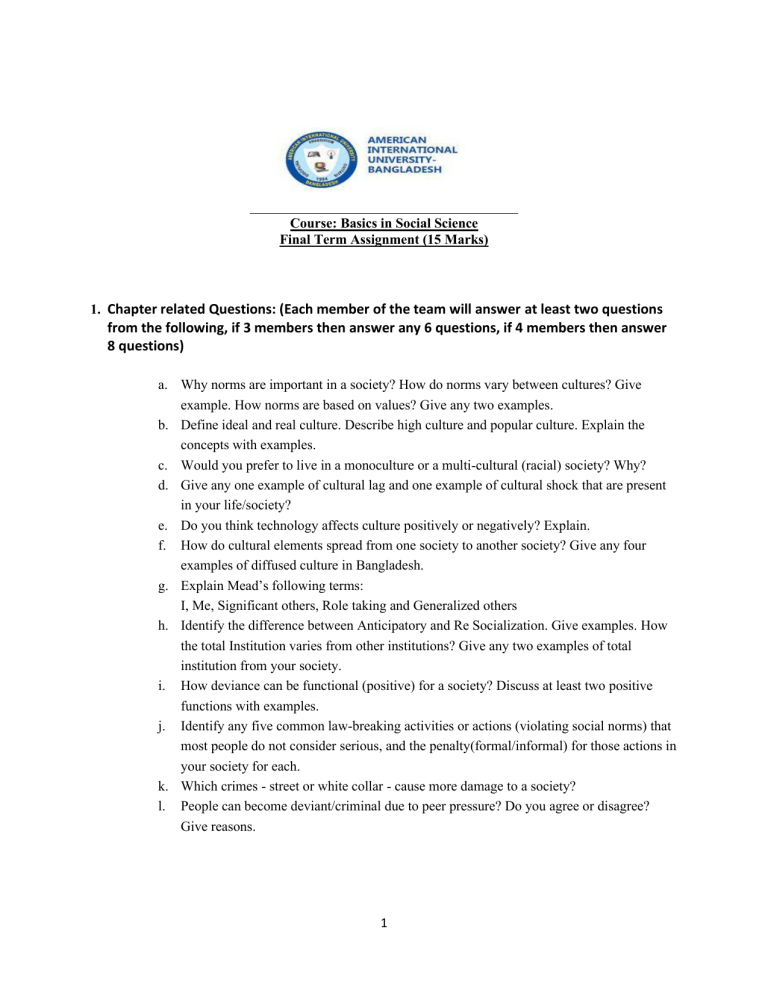
Course: Basics in Social Science Final Term Assignment (15 Marks) 1. Chapter related Questions: (Each member of the team will answer at least two questions from the following, if 3 members then answer any 6 questions, if 4 members then answer 8 questions) a. Why norms are important in a society? How do norms vary between cultures? Give example. How norms are based on values? Give any two examples. b. Define ideal and real culture. Describe high culture and popular culture. Explain the concepts with examples. c. Would you prefer to live in a monoculture or a multi-cultural (racial) society? Why? d. Give any one example of cultural lag and one example of cultural shock that are present in your life/society? e. Do you think technology affects culture positively or negatively? Explain. f. How do cultural elements spread from one society to another society? Give any four examples of diffused culture in Bangladesh. g. Explain Mead’s following terms: I, Me, Significant others, Role taking and Generalized others h. Identify the difference between Anticipatory and Re Socialization. Give examples. How the total Institution varies from other institutions? Give any two examples of total institution from your society. i. How deviance can be functional (positive) for a society? Discuss at least two positive functions with examples. j. Identify any five common law-breaking activities or actions (violating social norms) that most people do not consider serious, and the penalty(formal/informal) for those actions in your society for each. k. Which crimes - street or white collar - cause more damage to a society? l. People can become deviant/criminal due to peer pressure? Do you agree or disagree? Give reasons. 1 2. Answer the questions from any one of the following cases (Case 1 on Culture or Case 2 on Socialization): Culture: Case 1: Amish culture-separated from the modern world The old order Amish live a “simple” life and reject most aspect of modernization and contemporary technology. Today the old order Amish lives in about 50 communities in the United States and Canada. The Amish are averse to any technology which they feel weakens the family structure. The conveniences that the rest of us take for granted such as electricity, television, automobiles, telephones and tractors are considered to be a temptation that could cause vanity, create inequality, or lead the Amish away from their close-knit community and, as such, are not encouraged or accepted in most orders. The family is the most important social unit in the Amish culture. Large families with seven to ten children are common. Symbolic of their faith, Amish clothing styles encourage humility and separation from the world. The Amish dress in a very simple style, avoiding all but the most basic ornamentation. The Amish believe strongly in education, but only provide formal education through the eighth grade and only in their own private schools. Schooling concentrates on the basic reading, writing, math and geography, along with vocational training and socialization in Amish history and values. Life of Amish attracts particular attention since their life-style pushes them to forgo movies, radio, television, cosmetics, jewelry, musical instruments of any kind and motorized vehicles. The Amish maintain their own schools and traditions, and they do not want their children socialized into many norms and values of the dominant culture of the United States. Answer the following questions: 1. If a sociologist wants to study the Amish society what should be the cultural attitude of the study? and why? 2. Do you consider Amish culture as a counter culture? Why or why not? 3. In your opinion, what are the advantages and disadvantages of living in an Amish community? 4. Do you support the idea that the Amish society should change their way of life and take the benefits of modern society? Give reasons for your answer. Socialization Case-2 The Case of Isabelle: Children Raised in Isolation Isabelle was discovered in Ohio in the 1930s at the age of six. She had lived her entire life in a dark attic with her deaf-mute mother, after her grandfather decided he couldn’t bear the embarrassment of having a daughter with an illegitimate child. He had banished both of them to the attic, where they lived in darkness and isolation. When Isabelle was discovered, she couldn’t speak. After about two years of intensive work with language specialists, Isabelle acquired a vocabulary of about 2,000 words and went on to have a relatively normal life. 2 The case of Identical Twins Identical twins Oskar Stohr and Jack Yufe were separated soon after their birth and raised on different continents and in very different cultural settings.Oskar was reared as a strict Catholic by his maternal grandmother in the Sudetenland in Czechoslovakia. By contrast, his brother Jack was reared Trinidad by the twins’ Jewish father. But when the twins were reunited in middle –age, some startling similarities emerged: they liked spicy foods and sweet liqueurs, were absent-minded, stored rubber bands on their wrists and dipped butter toasts in their coffee. The twins also differed in many important respects: Jack was a workaholic, Oskar enjoyed leisure time activities. Whereas Oskar was a traditionalist who was domineering towards women, Jack was a political liberal much more accepting of feminism. Finally Jack was extremely proud of being Jewish, where Oskar never mentioned his Jewish heritage. Oskar and Jack are prime examples of the interplay of heredity and environment. Q1. By Using Case of Isabelle explain how Socialization can help to change/modify people? Q2. Self-development or persomality development is the interaction between nature and nurture-expalin this by using the case of Identical Twins You should add your own opinion and can take help from other sources like internet, class discussion, book etc. to answer the above questions. • • • • Submission Deadline: The last date for submission of the of the Assignment is on or before Sunday 19/12/2021. The team leader will submit the Assignment in the Assignment section on behalf of the group. The first page of the Document should include Team name, Name and ID of all the members in a team, Course Name, Section and Course Teacher’s Name. Font size: 12 Shaira Matin Assistant Professor Department of Social Science Faculty of Arts & Social Sciences E-mail: shaira102@aiub.edu Phone No: 01712019398(if there is any emergency) Best of Luck! 3

